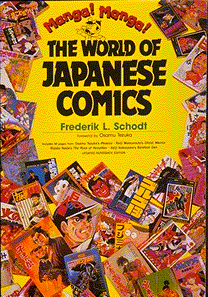


Manga! Manga! The World of Japanese Comics is a 1983 book by Frederik L. Schodt. Published by the Japanese publisher Kodansha, it was the first substantial English-language work on Japanese comics, or manga, as an artistic, literary, commercial and sociological phenomenon. Part of Schodt's motivation for writing it was to introduce manga to English speakers.[1] The book is copiously illustrated and features a forewordbyOsamu Tezuka. It also includes translated excerpts from Tezuka's Phoenix, Keiji Nakazawa's Barefoot Gen, and Riyoko Ikeda's The Rose of Versailles, and the Reiji Matsumoto short story "Ghost Warrior".
Manga! Manga! was enthusiastically reviewed in the mainstream and comics press and received a prominent endorsement from Stan Lee.
In 1996, Stone Bridge Press published Schodt's "sequel" to Manga! Manga!, Dreamland Japan: Writings on Modern Manga. In the introduction to this book, Schodt states that a Japanese bistro in Berkeley, California took its name from Manga! Manga!
This article about an art-related book is a stub. You can help Wikipedia by expanding it. |
This manga-related article is a stub. You can help Wikipedia by expanding it. |